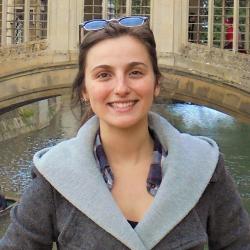Department of Clinical Biochemistry
Research theme: Bioscience for an integrated understanding of health
Research
Project Title:
Role of lysophosphatidylcholine acyltransferases (LPCATs) on adipose tissue expansion and Metabolic Syndrome
Project Summary:
White adipose tissue (WAT) is an endocrine organ specialized in storing/mobilising energy as lipids. In response to positive energy balance, adipocytes need to grow in number and size, but this capacity is limited. When WAT cannot further expand (i.e., severe obesity or even in lipodystrophic phenotypes), the excess of nutrients cannot be efficiently stored and lipids and spill over to other tissues such as liver, pancreas and muscle, known as lipotoxicity. This leads to severe metabolic complications including insulin resistance, diabetes, NAFLD and cardiovascular disease. Healthy function of adipocytes requires the dynamic biosynthesis and remodelling of glycerophospholipids, one of the major constituents of the plasma membrane. The Lands cycle is responsible for the remodelling of glycerophospholipids and ensures their asymmetry and diversity, through a concerted action of enzymes including phospholipases (PLA2) and a variety of Lysophosphatidylacyltransferases (LPLATs). Specifically, LPLATs are responsible for the incorporation of specific mono/polyunsaturated fatty acids into the sn2 moiety of lysophospholipids.
Growing body of evidence suggests that LPLATs play an essential role in the pathophysiology of several metabolic organs such as the liver and intestine, but there is still little information regarding their role in WAT expansion. This project aims to identify the functional relevance of these enzymes in the context of adipose tissue expansion during positive energy balance, by using genetically modified models, in vitro systems and system biology approaches.
Increasing our understanding of how perturbation in the expression/activity of those enzymes relate to metabolic complications may open new avenues of research and facilitate the development of novel therapeutic strategies against obesity and associated co-morbidities.
Teaching and Supervisions
Professor Antonio Vidal-Puig


